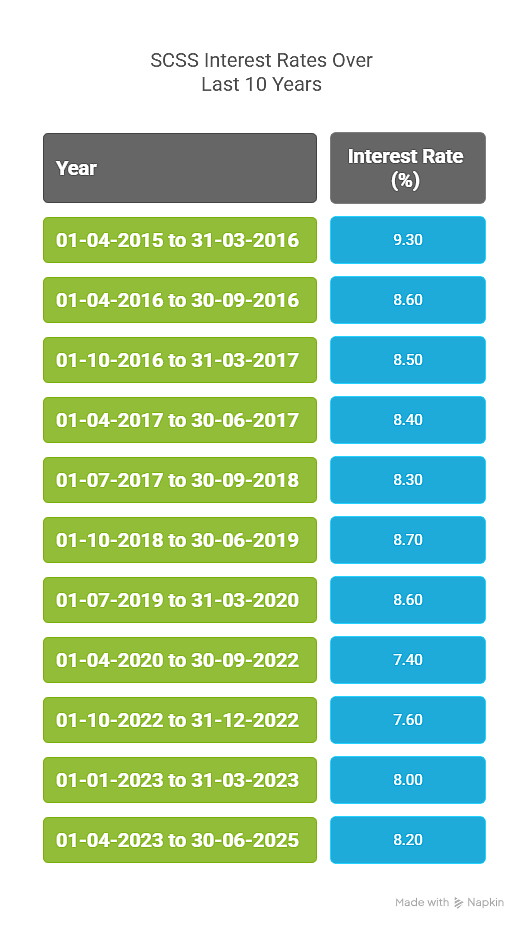The Senior Citizens Savings Scheme (SCSS) is designed for seniors, aged 60 years and above, allowing them to invest money for an initial period of five years. The scheme offers a guaranteed quarterly interest on their investment. Currently, the interest rate for SCSS is 8.2 per cent, which is the highest rate available among all small savings schemes offered by the post office. A senior, whether retired, self-employed, or non-working, can open an SCSS account with a post office or bank and invest up to Rs 30 lakh. SCSS is like a fixed deposit (FD), booked at prevailing interest rates and which remains intact even if interest rates go down or up in the future.
However, considering the recent rate cut by the Reserve Bank of India (RBI), and falling interest rates in the banks, should seniors consider locking their funds in SCSS for a guaranteed interest income?
Is It The Right Time To Lock In Funds In A Senior Citizens Savings Scheme?
According to Kavita Bothra, Partner, Primassure LLP, a wealth management firm, “Yes, it absolutely is. The SCSS continues to be one of the best options for retirees seeking safety, predictability, and decent returns. As of Q1 FY2025-26, the SCSS offers 8.2 per cent per annum, which is fully backed by the Government of India. That’s a rare combination of high yield and sovereign guarantee.”
During the RBI MPC week ending June 7, 2025, more than 10 banks revised their FD rates to the lower side, typically offering between 7-8 per cent. Amid this, SCSS remains attractive with 8.2 per cent interest rates.
CA Anjali Sharma, Head of Products- Sapient Finserv Private Ltd, says, “Definitely worth considering SCSS right now. With interest rates on a declining trend, locking in the current 8.2 per cent per annum offered by the Senior Citizen’s Savings Scheme could be a smart move for those eligible. It’s one of the few safe, government-backed options offering such high fixed returns, and the rate is locked for 5 years, which shields investors from future rate cuts.”
What Are The Chances Of A Rate Cut In SCSS Interest For The Upcoming Quarter?
The government reviews the interest rates of small savings schemes every quarter. Now, these are to be reviewed at the end of June 2025 for the next quarter (July-September), and the government may consider reducing it.
Sharma points out, “With the RBI’s surprise 50 bps repo rate cut on June 6, followed by a 100 bps CRR reduction, it’s clear the central bank is prioritising growth. Given this sharp policy easing and the shift to a neutral stance, there is a high likelihood that small savings rates, including SCSS, could be revised downward in the next quarterly reset.”
Bothra adds, “There’s a strong possibility of rates remaining stable in the next quarter, but a cut can’t be ruled out beyond that.” She attributes it to inflation, which is within target range, however, being sticky, end of the rate cut cycle, expected rate cut by the US in late 2025, and India following suit with a lag.”
She suggests to seniors, “If you’re a retiree, it’s better to act than to predict. Lock in the current rates, especially for SCSS and POMIS. The goal is to build a reliable monthly income stream.”
Here are the historical interest rates in SCSS:
Senior Citizens’ Savings Scheme over last 10 years

Note that the SCSS interest rates remain the same for the entire five-year duration and change only at the time of renewal at the prevailing rates. The renewal can be done indefinitely in the block of three years.














